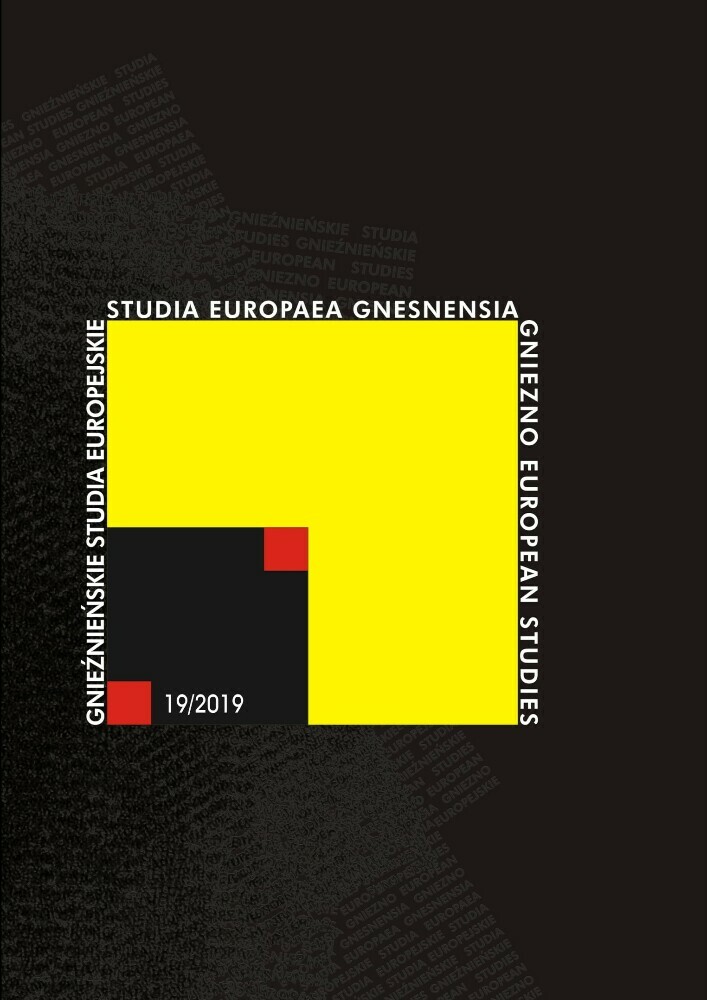Abstrakt
The article aims to describe the civilizational aspect of the State of Israel in the historiosophic and geopolitical thought of Aleksandr G. Dugin, who is considered the most influential and controversial representative of modern Russian neo-conservatism. Firstly, the article presents the intellectual and political context of Dugin’s intellectual evolution. Secondly, it shows the role of the State of Israel in the conflict of civilizations. Thirdly, it describes Dugin’s interpretation of the cul-tural and civilizational identity of the State of Israel and its geopolitical conse-quences.
Bibliografia
Aptekman M. 2006, Kabbalah, Judeo-Masonic Myth, and Post-Soviet Literary Discourse, From Political Tool to Virtual Parody, The Russian Review 65, 4, s. 657-681.
Dugin A. 1997, Krestovyy pokhod Solntsa, Moskva.
Dugin A. 2009, After Tskhinvali: Interests and Values, Russian Politics and Law 47, 3, s. 61-70.
Dugin A. 2014a, Geopolitika Rossii, Moskva.
Dugin A. 2014b, Evraziyskiy revansh Rossii, Moskva.
Dugin A. 2014c, Mezhdunarodnyye otnosheniya, Moskva.
Dugin А. 2014d, Noomakhiya: voyny uma. Tsivilizatsii granits, Moskva.
Dugin А. 2014e, Chetvertyy put’. Vvedeniye v Chetvertuyu politicheskuyu teoriyu, Moskva.
Dugin А. 2014f, Etnosotsiologiya, Moskva
Dugin А. 2015a, Voobrazheniye: Filozofiya, sotsiologiya, struktury, Moskva.
Dugin А. 2015b, Russkaya voyna, Moskva.
Dugin А. 2015c, Russkiy logos – russkiy khaos. Sotsiologiya russkogo obshchestva, Moskva.
Dugin А. 2015d, Teoriya mnogopolyarnogo mira: Plyuriversum, Moskva.
Glass Ch. 1975-1976, Jews against Zion: Israeli Jewish Anti-Zionism, Journal of Palestine Studies 5, 1/2, s. 56-81.
Hartman D. 1987, The Challenge of Modern Israel to Traditional Judaism, Modern Judaism 7, 3, s. 229-252.
Huntington S. 2002, The Clash of Civilizations and the Remaking of World Order, London.
Kellner M. 1986, Messianic Postures in Israel Today, Modern Judaism 6, 2, s. 197-209.
Laqueur W. 1971, Zionism and Its Liberal Critics 1896–1948, Journal of Contemporary History 6, 4, s. 161-182.
Laruelle M. 2004, The two faces of contemporary Eurasianism: an imperial version of Russian nationalism, Nationalities Papers 32, 1, s. 115-136.
Laruelle M. 2008, Russian Eurasianism: An Ideology of Empire, Washington D.C.
Nosachev P. 2013, Integralnyy traditsionalizm: mezhdu politikoy i ezoterikoy, Gosudarstvo, religiya, tserkov’ v Rossii i za rubezhom 31, 4, s. 203-222.
Orbach A. 1990, The Jewish People’s Group and Jewish Politics in Tsarist Russia 1906-1914, Modern Judaism 10, 1, s. 1-15.
Sharif W. 1977, Soviet Marxism and Zionism, Journal of Palestine Studies 6, 3, s. 77-97.
Shlapentokh D. 2007, Dugin Eurasianism, a window on the minds of the Russian elite or an intellectual ploy?, Studies in East European Thought 59, s. 215-236.
Shlapentokh D. 2008, Alexander Dugin’s Views on the Middle East, Space and Polity 12, 2, s. 251-268.
Shnirel’man V. 2016, Aleksandr Dugin, vozvedeniye mosta mezhdu eskhatologiyey i konspirologiyey, Gosudarstvo, religiya, tserkov’ v Rossii i za rubezhom 34, 4, s. 194-221.
Smith G. 1999, The Masks of Proteus, Russia, Geopolitical Shift and the New Eurasianism, Transactions of the Institute of British Geographers 24, 4, s. 481-494.
Vital D. 1998, Zionism as Revolution? Zionism as Rebellion?, Modern Judaism 18, 3, s. 205-215.

